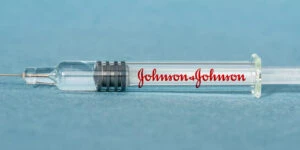
Physiomesh, also known as Physiomesh Flexible Composite Mesh, is a flexible, polypropylene large-pore woven mesh that is non-absorbable and made to be compatible with the abdominal tissues. Physiomesh was designed by its manufacturers to replicate the functions of the abdominal wall.
Marketed by a subsidiary of Johnson & Johnson known as Ethicon, Physiomesh has been used medically to repair ventral hernia during laparoscopic hernia operations—in which a laparoscope, a lighted scope, is inserted through an incision, enabling repair of the hernia. The Physiomesh is then placed over and into the defect in the abdomen wall to reinforce its stability.
The basic purpose of the Physiomesh is to support recovery from a hernia by strengthening the capacity of the abdomen wall.
PROBLEMS & COMPLICATIONS WITH PHYSIOMESH
Physiomesh was approved by the Federal Drug Administration (FDA) in 2010, but subsequently removed from the market in 2016 after two studies showed that the product was causing internal injuries, adverse side effects, and significant health problems in many patients.
In comparison to other similar hernia mesh products, Physiomesh implantation was shown to result in much worse outcomes, including increased rates of: hernia reoccurrence, additional surgery to repair problems or damage caused by the product, and internal organ injuries.
Alarmingly, about 20% of Physiomesh patients have hernia reoccurrence within six months of the initial operation, prompting another operation.
During the 6-7 years that Physiomesh was on the market, it was used in thousands of hernia operation patients, many of whom suffered from complications, adverse side effects, and injuries. If you have had a Physiomesh implantation and experienced adverse side effects or complications, you may be eligible for a personal injury suit against Ethicon, the product manufacturer.
For a free legal consultation with a Personal Injury Lawyer
PHYSIOMESH SIDE EFFECTS: SHORT-TERM
- Chronic and recurrent pain and inflammation around the hernia incision site
- Hernia recurrence
- Mesh contraction
- Internal infection caused by Physiomesh chemical coating
- Fever and nausea
Chronic and severe pain following Physiomesh implantation is common, as well as inflammation and sometimes infection at the incision site caused by the chemical properties of the mesh. As stated, above, hernia reoccurrence after Physiomesh is estimated at 20% of all patients within 6 months. Some infections caused by Physiomesh can be treated with antibiotics, but others cannot and cause long-term problems that require more significant medical treatment.
PHYSIOMESH SIDE EFFECTS & COMPLICATIONS: LONG-TERM
- Abdominal abscess, an area of inflamed tissue filled with pus Intestinal fistula, an abnormal opening in the abdominal wall through which gastric fluids can be discharged, leaking into organs and causing infection Tissue adhesion, scarred tissue that binds together internal organs or tissues Mesh fragmentation and migration, by which pieces of the mesh detach and travel to other portions of the body, causing obstructions and/or infection Bowel obstruction caused by hernia repair adhesions
Unfortunately, Physiomesh implantations cause a host of unwanted and potentially destructive side effects and adverse reactions that can profoundly impact and jeopardize your health. All of these problems and complications cause significant physical pain, and all of them require additional medical help by a physician.
Personal Injury Lawyer Near Me
WHY PHYSIOMESH IS SO DANGEROUS
According to medical sources, Physiomesh is so problematic because it is composed of polypropylene—or plastic—which is not a compatible substance for the human body. Think about it for a moment; polypropylene is a chemical substance used in food containers, automotive parts, packaging materials, and tapes. Do you really want this substance inserted deep within your body, making contact with your bowels and/or other internal organs?
Click to contact our Personal Injury today
PHYSIOMESH LAWSUIT
There are currently over 1,500 Physiomesh lawsuits in Federal courts nationwide. With evidence from scientific research on the proven dangers of Physiomesh, personal injury cases are well-supported. The majority of lawsuits contend that Physiomesh is a defective medical product causing harm to patients who were not warned of such dangers. It is even possible that the product was not thoroughly tested before its release or approval by the FDA.
We Are committed to winning and winning big for our clients





